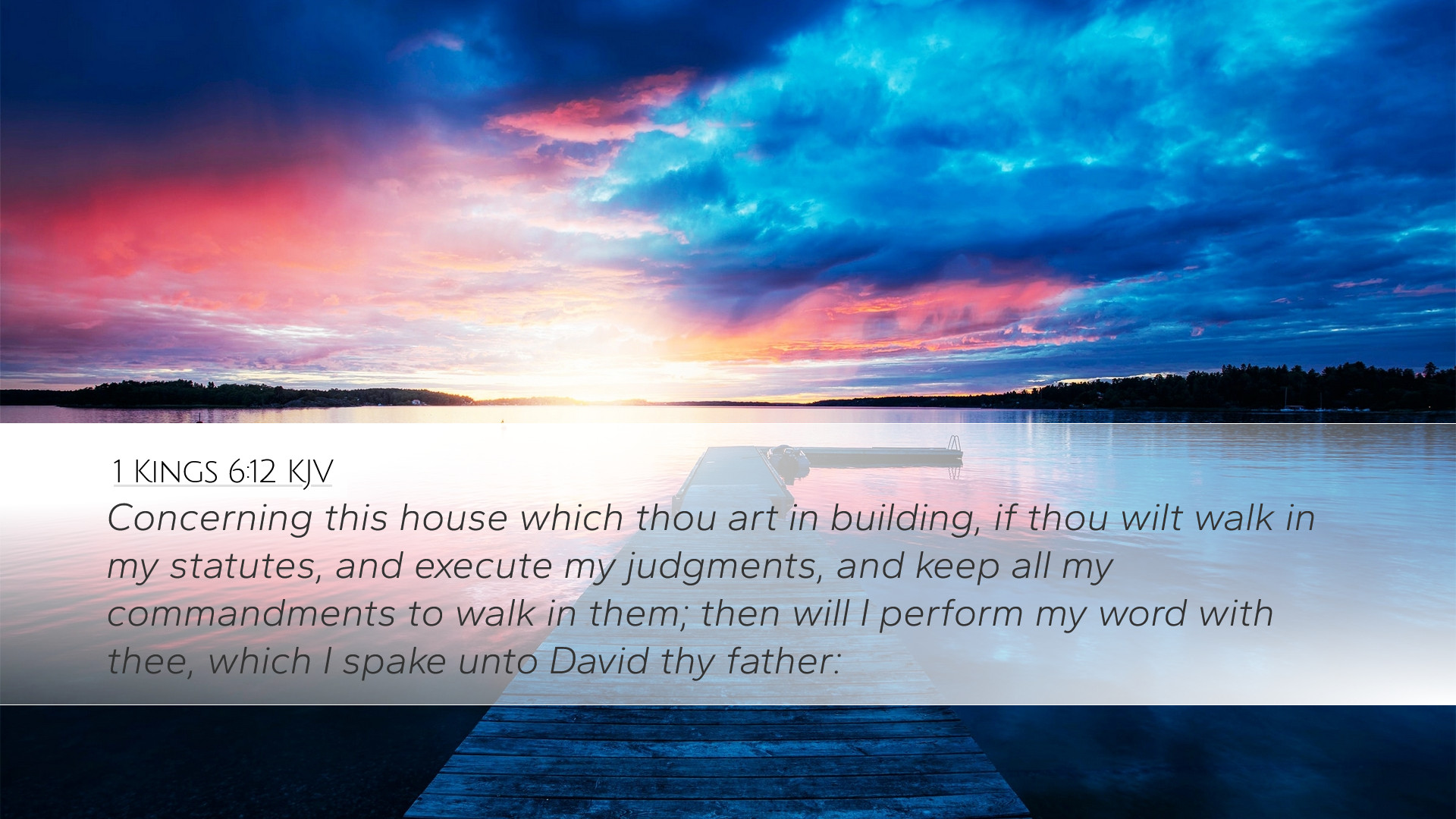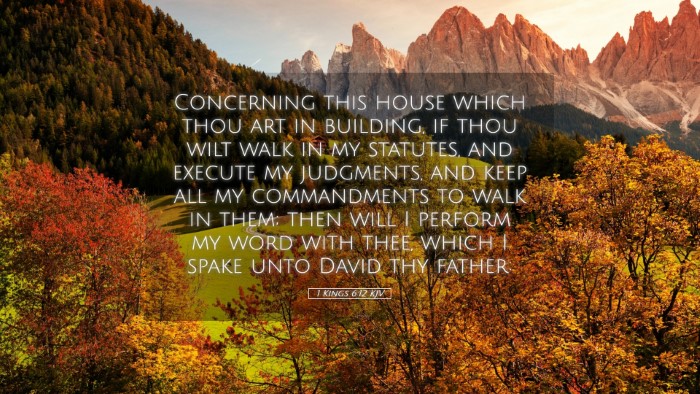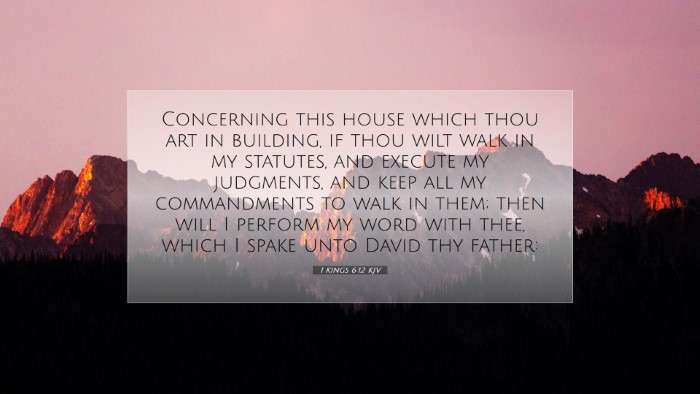Bible Commentary on 1 Kings 6:12
Verse Overview: 1 Kings 6:12 states, "As for the house which you are building, if you will walk in My statutes, execute My judgments, keep all My commandments and walk in them, then I will perform My word with you, which I spoke to your father David." This verse highlights the divine promises associated with obedience to God's commands in the context of the construction of the temple by Solomon.
Contextual Analysis
The context of this verse is critical for understanding its implications. Solomon, in the midst of building the temple, received specific instructions from God. This moment emphasizes the importance of aligning physical religious structures with genuine spiritual commitments.
Divine Covenant and Obedience
This promise of God to Solomon is rooted in the covenant established with David. Adam Clarke in his commentary observes how God emphasizes the condition of obedience — if Solomon walks in God's ways, then the divine promises will be fulfilled. This is not merely about constructing a physical temple but establishing a lasting relationship with God.
God’s Assurance
Matthew Henry notes that the assurance God gives here is double-edged; it is a promise of God's presence and favor contingent on Solomon's faithfulness. This conditional promise serves as a reminder that God's blessings often require human response and responsibility.
Theological Implications
There are profound theological implications in this verse that resonate with both historical and contemporary believers.
Obedience and Divine Favor
The call to obedience reflects a central theme throughout Scripture. Albert Barnes emphasizes that God desires not just the outward act of temple building but an inner commitment to His laws. This suggests that God's favor is intricately tied to personal piety and fidelity to His commandments.
The Role of the Temple
The temple represents more than a mere building; it embodies the presence of God among His people. It serves as a focal point of worship and relationship. The conditions set forth in this verse speak to how the physical space of worship should be complemented by a right heart and righteous living.
Spiritual Applications
For pastors and theologians, this verse encourages a deeper reflection on the nature of worship and commitment to God.
Formation of Identity
Worship in spirit and truth requires more than external conformity. Clarke articulates the necessity of a heart aligned with God's statutes. This isn't simply about adherence to rules; it's about forming a spiritual identity that reflects God’s character.
Community Implications
The communal aspect of worship is also highlighted here. As leaders and communities seek to build or maintain their places of worship today, the emphasis must be on collective obedience to God's commandments, as described in 1 Kings 6:12. Faithfulness as a body of believers will bear witness to God's ongoing promises.
Conclusion
This verse encapsulates the idea that God takes an active role in the lives of those He calls to lead His people. The conditionality of God’s promises draws attention to the need for ongoing fidelity in the covenant relationship.
As we reflect on 1 Kings 6:12, let us be reminded that our structures of faith must be accompanied by lives that reflect God’s law and love. This duality of faith and works continues to define the relationship God seeks with His people, marked by obedience, commitment, and enduring faithfulness.


